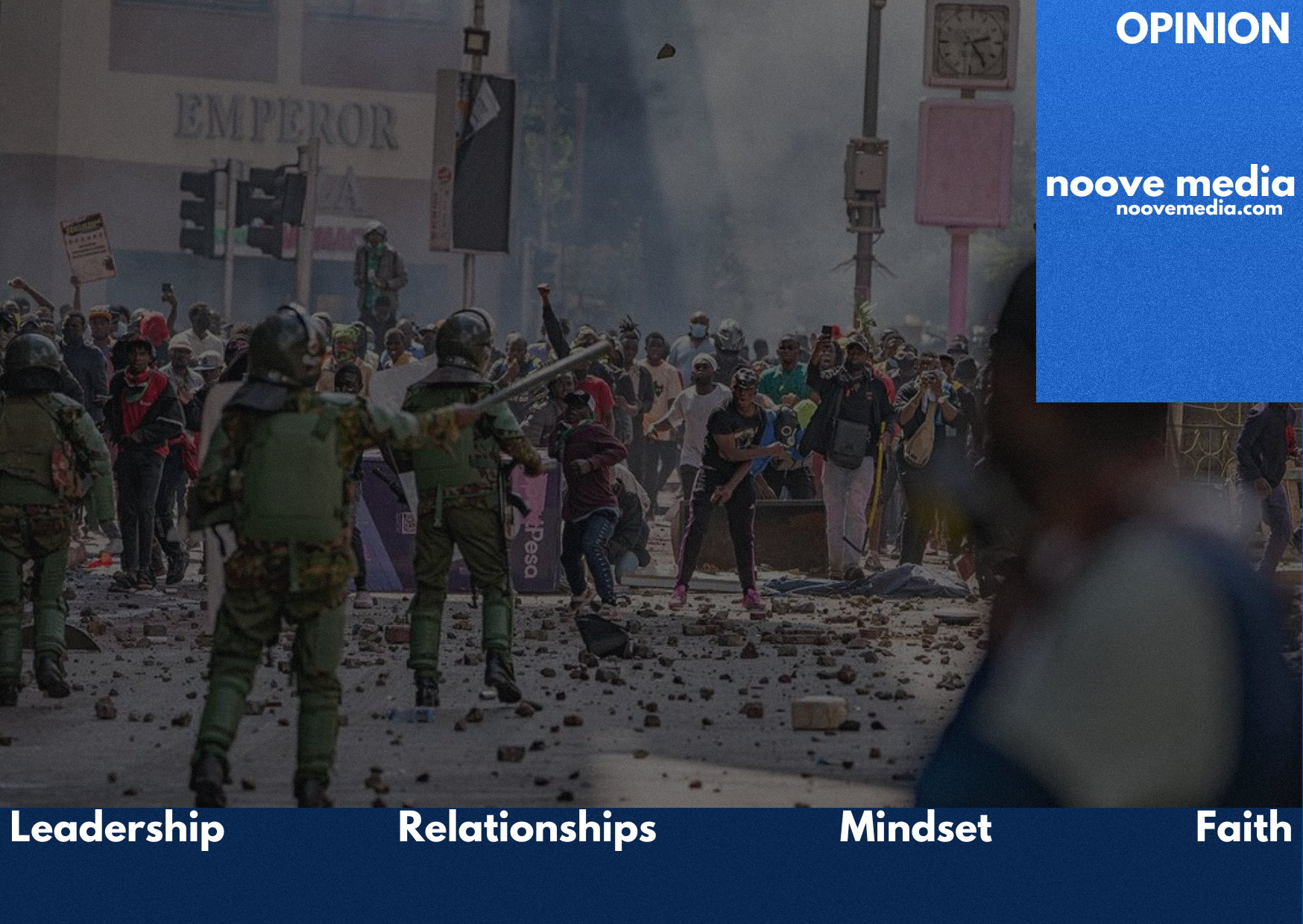In 1991 Moi acceded to multiparty politics after Kenyans protested in 1990. In 1992, 12 mothers went on an 11-month hunger strike demanding the release of their children after former Attorney General Amos Wako declined their appeal. Since independence, Kenyans have turned to the streets to make their demands. In June 2024, Kenyans surprised the government by organizing the mother of all protests since independence. Thirty-five counties and Kenyans living abroad participated simultaneously in the protest. Millions of young people thronged the cities, and towns, demanding total rejection of the Finance Bill 2024. Africa and the world observed in shock as Kenyans demanded their right. How did Kenya pull out such a protest that forced the President to accede, reduce the number of advisers by 50%, and engage the youth on X space?
The people were angry at the government but the leaders were oblivious of what was happening on the ground. They probably thought the anger would fade as it had happened in the past. Little did they know they were dealing with a connected generation. The government undermined the level of connection among the people who elected them.
While they were busy, mobilizing themselves to approve the Finance Bill 2024 into law, the masses were mobilizing for a protest like no other. They informed everyone they could wherever they were. Distance didn’t matter. They wanted to tell you about the finance bill and ask you to participate in the protests. When June 25th dawned, protests started normally but in the evening, the government deployed the Kenya Defense Force on the streets of Nairobi, there were rumors the government would declare a state of emergency. The Gen Z and Millenials had outdone the government.
Read: Power of Persistency
Many have toned down social media to a tool young people use for socializing. June 2024 protest proved social media offered more. The protest dubbed the Gen Z movement was coupled with millennials and the Gen Z generation, who spend most of their time on social media. Instead of using the tool for creating and sharing memes, this time they used it to educate others on the Finance Bill and mobilizing people.
X, previously Twitter, has always been a platform where political conversation get dissected to simple details for the common man to understand. X is full of highly intelligent Kenyans, savvy in politics, and connected politically. Most political bloggers like Pauline Njoroge and Robert Alai, established their ground by engaging in discussion on the platform. Politicians are also bold in expressing their concerns. After the Mammoth protest on June 25th, more than 130,000 Millenials and Gen Z came together in a space to discuss the way forward after they actualized #occupyparliament. The space was exclusively for ordinary Kenyans. All politicians were denied room.
The X app was at the heart of all discussion and protest. Before the protests, debates about the financial bill were happening on the platforms. Influential digital activists would create spaces to discuss the details of the bill and push the hashtag #rejectfinancialbill2024. Many Kenyans were against it. The first bunch of Kenyans took their distress to the street on 15th June while others made rants on TikTok. Three days later, thousands of youths flocked to the streets during the day and engaged in online discussions at night. Following were digital posters designed to mobilize people and the agenda.
Celebrities on Facebook, TikTok, and Instagram shared the posters to spread the information. Influencers like Lynn Ngugi went further and confronted the President’s daughter Charlene Ruto who was publicly supporting the financial bill. Ngugi’s remarks received widespread support, fuelling people’s rage and desire to be on the street. Influencers on X pushed the hashtag #rejectfinancebill2024 until it reached 2 million posts before X admins flagged it. International celebrities like Koshens and footballer Cole Palmer joined Kenyans on X in rejecting the bill.
Kenyan celebrities practiced their preaching by appearing on the streets and recording it live to inspire others. The streets were crowded with Celebrities like Holydave, Octopizzo, Juliani, and Nyashinski, just to name a few. Religious figures like Pastor T, a celebrated youthful pastor, and Robert Burale made their stand known.
The discussion was the same in WhatsApp groups and personal spaces. People took it to share their opinions and reasons to participate in the protests. Others shared their experience on WhatsApp Status. Despite many Kenyans rejecting the Finance Bill, 204 Members of Parliament favored it while 115 rejected it. Kenyans felt betrayed. Their anger turned the protest into an insurrection-like. Many died, billions were lost and the parliament was broken into and partially burnt. The following day, the president conceded. The people won.
Facebook, X, Instagram, and TikTok have been with us for a long time. Big companies have used these platforms before but none has achieved impact as in the protests. The organization and communication of the protest was seamless. More than 1 million Kenyans came together having one agenda in mind. Twenty-five million was raised through social media to facilitate the medical needs of those shot during the leaderless, tribeless, and party-less protesters as Gen Z dubbed it.
The Finance Bill 2024 angered many. But, it is not the only thing oppressing people. We have drug abuse, poverty, financial illiteracy, human trafficking, domestic abuse, and neocolonialism crippling the country. Some of these problems have been with us for decades.
Can we also use the same strategy used to stop the Finance Bill 2024 to deal with issues that have frustrated us for years? We can Mobilize people angered by a certain problem and communicate the way past the problem. We can bank on a strategy that can work. After the protests, Kenya will never be the same again. The government and business people will never overlook social media again. So should you.

 using WordPress and
using WordPress and
No responses yet